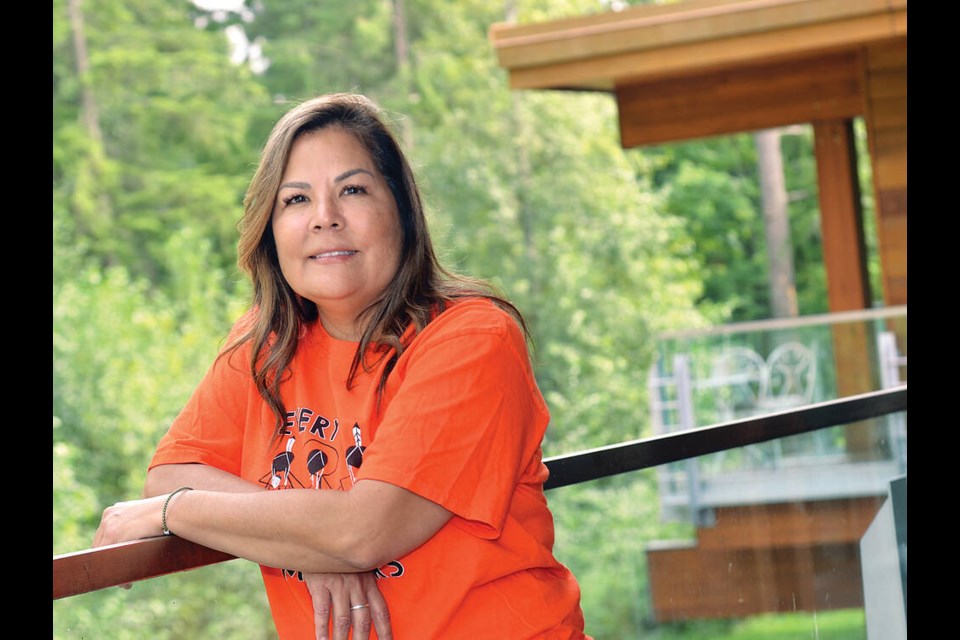My parents had such strength to survive abuse and starvation in the Indian Residential School system.
I can’t understand the cruelty that happened to them. When I think about them, the words “miraculous” and “courageous” come to mind. This is why, as an adult now, understanding truly what happened is so difficult to even talk about.
September itself is a triggering month because our children had to prepare to go back to school and some of our səlilwətaɬ (Tsleil-Waututh) survivors still have physical memory responses of the trauma of having to go back to residential school.
This is a time of reflection, truths, and action. Now is the time to teach the truth of Canada’s colonial history and genocide of Indigenous peoples. Canadians need to educate themselves about Indigenous peoples, gain an understanding of Aboriginal Rights and Title, the Declaration of the Rights of Indigenous Peoples (DRIPA), and our right to self-determination.
When I think of families who are here on the North Shore, I encourage them to teach the next generations with compassion and truth. We have a collective responsibility to make systemic change.
When I think about the National Day for Truth and Reconciliation, it’s not just about wearing an orange shirt for one day out of the year. When we talk about allyship, reconciliation is an action that happens every single day. There are so many areas where individuals and organizations can do their due diligence. Ask yourself: Are you truthfully walking alongside Indigenous people and engaging with Indigenous people to make honest, effective change?
We are starting the discovery interview process with our Tsleil-Waututh survivors of the St. Paul’s Indian Residential School. I reflect upon how we can continue to strengthen our community and ensure our survivors are safe, supported, and how we can collectively heal as a community.
Within our TWN Health and Wellness department, we’ve developed a cultural framework that guides our services. We take a strength-based approach to build on the cultural and spiritual practices that we continue today. We have a two-eyed seeing model: incorporating traditional and Western medical approaches to care, providing wraparound services to include the mental, emotional, physical, and spiritual aspects of a person. Our programs are community-driven and community-based, and it’s imperative that we continue to embed our Tsleil-Waututh values, culture, language, and spirituality in our programming.
I am teaching my son and my grandson my family’s history and our history as Tsleil-Waututh people. I’m teaching them how to nurture their gifts and their position in this world – this is my role and the collective responsibility of community as knowledge keepers, to share the sacredness of who we are. My hope is that all of our Tsleil-Waututh generations embrace their culture, practice their spirituality and language, and grow in beautiful ways that nurture their gifts and they too will continue the role as stewards of the land, linguists, knowledge keepers, and Elders.
Andrea Aleck is a Tsleil-Waututh Nation member and Director of the Health and Wellness Department, ćećǝwǝt lelǝm Helping House, səlilwətaɬ (Tsleil-Waututh Nation).
Learn more about supporting Tsleil-Waututh Nation survivors via the Tsleil-Waututh Nation Residential School Survivors Fund: twnation.ca/how-to-support-twn/
The National Residential Schools Crisis Line is available 24/7 for anyone experiencing pain or distress as a result of residential school experiences: 1-866-925-4419.



